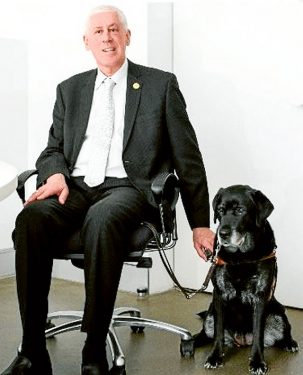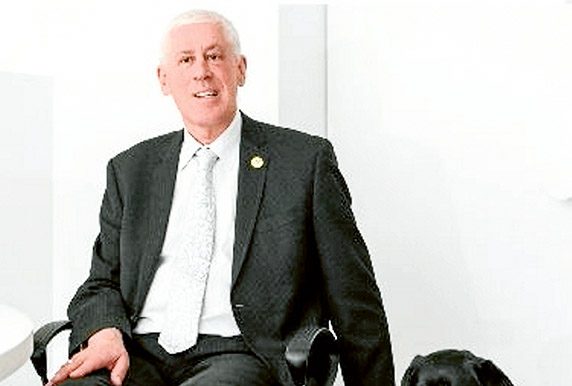
THIRTY years ago, when Graeme Innes finished university with a law degree and aspirations of a career where he could make a difference, he found a very different reality. Doors closed, employers baulked at employing someone who couldn’t see, and the future seemed bleak for a young man with a growing passion for human rights advocacy and workplace equality.
Mr Innes eventually found work as a clerical assistant answering phones in a law firm, but the lessons learned from those early experiences fuelled his passion for advocating for the invisible and voiceless.
He went on to become a successful lawyer, company director and Order of Australia recipient and, as Australia’s Disability Discrimination Commissioner from 2005-2014, had a hand in reforming federal discrimination laws that have paved the way for equality in the workplace.
He lists one of his proudest achievements as being part of the team behind the Disability Discrimination Act, which has provided an essential tool for disabled people to access employment and fight for their rights.
Another is the “same sex, same entitlements” report that sets out that everyone is entitled to “equal and effective protection against discrimination on any ground”.
He says that while attitudes towards “difference” are changing very slowly, without governments taking the lead a level playing field in the workplace is still far from achievable.
“Employers are savvy (but) they tend to follow the example set by the government.”
Mr Innes said the federal government’s “shameful” record of employing people with a disability – only three per cent – is one of the first things that needs to change.
He believes the combative relationship between the human rights office and the Turnbull Government is “damaging” to the democratic process; one that could further undermine the effectiveness and progress of the commission’s work.
Mr Innes described the treatment of Australian Human Rights Commission president Gillian Triggs as “pretty terrible” and said it was undemocratic to personally criticise people for “doing their job”.
“The Attorney General and the federal government have worked on the premise that if they don’t like the advice, they shoot the messenger.”
He said governments should be more interested in listening to independent advice and providing incentives to employers that are not limited to people on disability support pensions.
“One scheme we could have is where every MP would get an extra staff member if they employ a person with a disability. We know what it can do and it wouldn’t be expensive,” he said.
“But there is still a lot of work to be done to change attitudes and thinking around employing people with disabilities.
“I know of many small businesses who haven’t used the government’s incentive schemes to employ people with disabilities because of the bureaucracy – the process has to be simpler and there needs to be incentives to big business as well.”
Mr Innes will speak on human rights and discrimination at a Human Rights Oration at Mornington Secondary College, Friday 9 December.
Register: trybooking.com/NRDM or phone 5950 1099.

